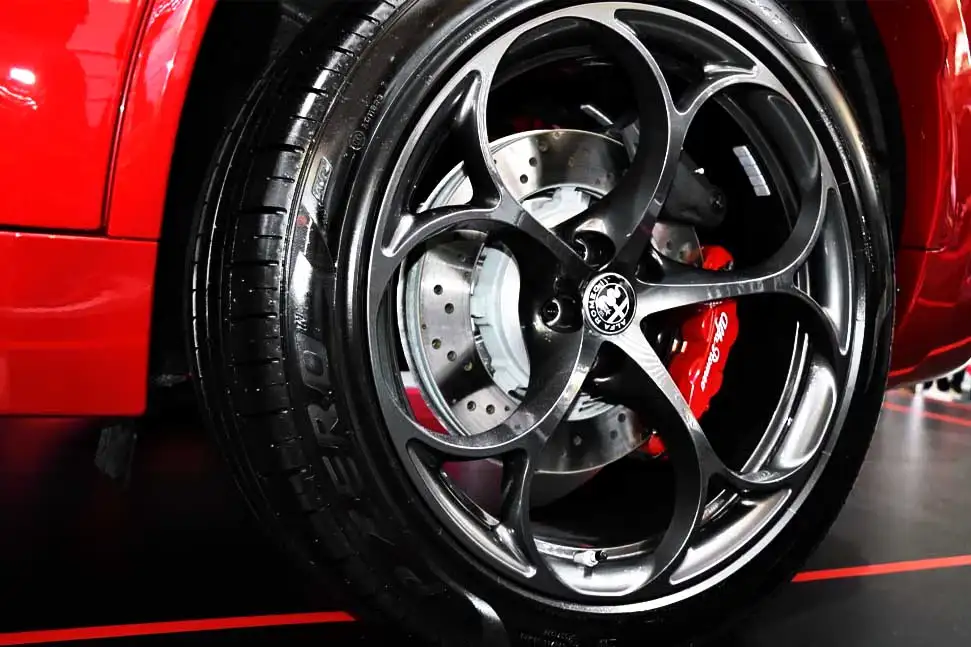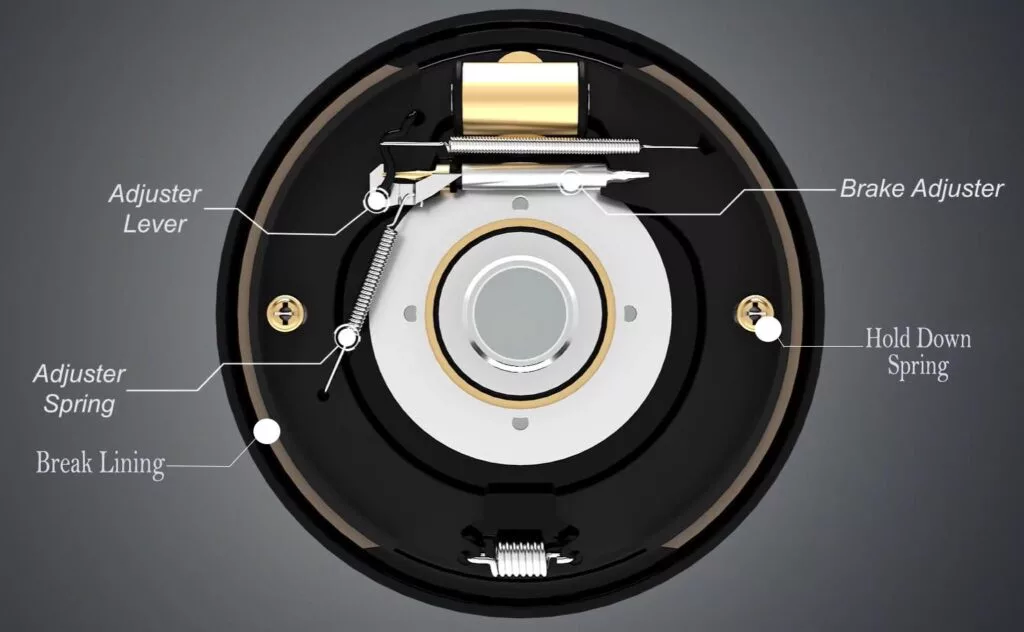If you are a real vehicle lover, or you have pretty good experience in driving vehicles, you may definitely have heard a knocking sound when braking rear. Those sounds come out due to an issue and should not be ignored. It would be best if you took the necessary actions to find out the reason and fix that problem.
As we always say, proper care will give your car a long life with minimum bugs and disorders, do not leave your vehicle alone. Just take care of it as it is your loving child. So in this article, we will find out why does that knocking sound comes out when breaking rear, and a fix for that issue if there is.
What are the most common brake noises?
Brakes That Squeal
This is the most common matter regarding the knocking sound when braking rear. When your brakes squeal, there’s nothing more annoying to the eardrums. You’ll squirm when you hear this high-pitched noise, but it will also alert you to the fact that something is off. There are undoubtedly several variables that might contribute to these uncomfortable sounds.
Your brake pads may be worn out if this is the case. Rust on your rotors could also be to blame. Because of where your rotors are, water may splash up and cause them to rust and wear down over time. If your brakes are squeaking, here are several possible causes.

Brakes Grind sounds.
The grinding of the brakes is just as terrifying as the squealing of the brakes. Your brake pads, or lack thereof, are to blame for this metallic and jarring sound. The disc and caliper scrape against each other when the brake pads are worn out.
Your brake pads serve as a buffer between the rotors and the calipers, preventing them from rubbing against one other. Braking systems may be severely damaged if these components continue to grind against one other and scrape the rotors.
Sounds of a Cramming
In most cases, loose bolts are to blame for a clunking or banging sound you hear. Make sure that all of your bolts have been tightened. Many different parts might be responsible for the clunking noises if they continue to occur.
Calipers may be loose and need to be retightened. If the problem is with your shock absorbers, you’ll need to have them changed. Your constant-velocity joints may possibly be worn out and causing the issue. A trusted service technician will be able to pinpoint the problem, allowing you to drive and brake safely.
Knocking Sound.
The brake pads vibrating in the brackets generate the banging sounds stated previously. This simple diagnostic may be made during the first driving test. While driving over a potholed road, lightly apply braking pressure.
The pads are moving if the noise has stopped. Purchase a hardware kit that includes the necessary pieces to repair the rattling pads.
How can you fix the Knocking Sound When Braking Rear?
There are some methods you can try in order to fix Knocking Sound When Braking Rear. So no, let’s see what you can do…
Repairing the Drum Brakes.
- Before removing the brake drum, soak the axle hub with excellent penetrating oil. In order to keep the hub from corroding, a small layer of synthetic caliper oil should be applied.
- Using a two-pound or heavier hammer, smash the drum between the lug nuts to loosen it. A two-threaded puller screw hole design is used in specific brake drum installations to speed up the removal of the drum.
- Always pry off the rubber end cover of the wheel cylinder while checking a drum brake to check for leaks. Because aluminum wheel cylinders cannot be adequately honed, they need to be replaced.
- Return springs enable the brake shoe’s self-adjusters to function appropriately, as well as retract the wheel cylinder pistons. The removal and replacement of hold-down and return springs on drum brakes is often a labor-intensive process requiring specialized equipment.
- The existence of a chamfer indicates whether or not a brake drum is suitable for resurfacing. To begin, I advise making a shallow cut to eliminate the worn ridges on the inner and exterior surfaces.
Avoid brake squeaking.
When discuss about the knocking sound when braking rear , we have to go through the avoiding brake squeaking. The best way to avoid brake squeaking is just to prevent repairing your vehicle. There is a lot of rust and corrosion in the area where the brakes are positioned.
Inspect for uneven wear and limited mobility while removing pads. This means that the weight isn’t uniformly distributed and that places are possibly hanging up. Open the bleeder valve and press the caliper piston back to complete the system examination.

Brake caliper service for avoid knocking sound when braking rear.
- Before commencing any hydraulic brake repair, it’s critical to read and follow a service handbook that details safe work practices. Pumping the brake pedal as instructed in a service manual or until the pedal becomes firm should be used to release the pressure in the anti-lock brake accumulator.
- Once the bleeder screw is released, the old fluid may be drained out of the caliper bore. If a blocked bleeder screw cannot be cleaned or replaced, it must be removed. If the bleeder screw is stuck, buying a new caliper will be less expensive.
- When the piston is inserted in the caliper bore, there are two schools of thought on how to prevent debris from flushing into the anti-lock braking and master cylinder components. As the caliper piston is being installed, the first “school” of caliper installation releases the bleeder screw to release pressure.
- Using hose-clamping pliers, the second “school” clamps the brake hose shut to prevent debris from reentering the master cylinder. There is less risk of harming the hose using the first-school procedure, which is widely regarded.
Finally, those sounds, including the Knocking sounds, should not be ignored and has to be fixed the first time you have the chance to avoid future damages which are unbearable.
FAQs about knocking sound when braking rear
What causes a knocking sound when you brake?
In most cases, loose bolts are to blame for a clunking or banging sound you hear. Make sure that all of your bolts have been tightened. Many different parts might be responsible for the clunking noises if they continue to occur. Calipers may be loose and need to be retightened.
Can brake pads cause clunking noise?
A worn or broken spring clip here on brake pads is the most common cause of single or numerous clunks while braking. The cylinder presses the pad on the disc/drum, clunk-clunk-clunk-clunk-clunk-clunk-clunk-clunk-clunk-clunk-clunk-clunk-clunk-c
Why is my car making a knocking noise when I slow down?
Check the braking system on the driver’s side wheel to check whether the caliper or rotor is damaged. Because the noise only happens while decelerating to a halt, it’s possible that the brakes are malfunctioning. If the noise persists, there is either a loose suspension component or a transmission issue.
We hope you’ve got the answer that you’ve needed for the question, “knocking sound when braking rear” reading our explanation. If you have more questions just leave a comment below, and we are really straightforward to help you further. If you need any answers for engine matters, check this link for it. Thank you.
